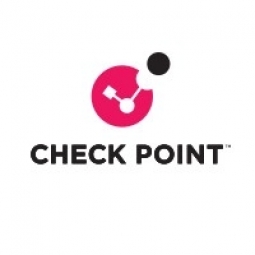Technology Category
- Cybersecurity & Privacy - Malware Protection
- Cybersecurity & Privacy - Network Security
Applicable Industries
- Equipment & Machinery
- National Security & Defense
Applicable Functions
- Maintenance
- Quality Assurance
Use Cases
- Inventory Management
- Supply Chain Visibility
Services
- System Integration
About The Customer
Starkey Hearing Technologies is a world leader in advanced hearing solutions and the largest U.S. manufacturer of hearing aids. The company's products are ordered by hearing care professionals worldwide through its online ordering and payment system. Starkey must meet Payment Card Industry (PCI) compliance requirements in addition to securing its business with other solutions, such as Data Loss Prevention (DLP), antivirus, and other network security tools. The company has 4,000 systems across 34 facilities worldwide.
The Challenge
Starkey Hearing Technologies, a leading developer and manufacturer of hearing aids worldwide, faced a significant challenge in protecting its systems against zero-day threats and ransomware attacks. The company needed to secure the laptops of its mobile users and gain better visibility into incidents without increasing management and maintenance tasks. The challenge was amplified when Starkey was hit by an advanced malware attack, Gatak, a type of Trojan that hides data in image files. This malware led to three or four advanced malware incidents per week, infecting 2,000 machines in just two weeks. The malware gathered valuable data, escalating access privileges to network assets and spreading laterally. When employees took their laptops home, they became much more vulnerable, indicating that Starkey’s antivirus solution was no longer sufficient.
The Solution
Starkey chose Check Point SandBlast Agent to protect the company’s desktops and laptops. SandBlast Agent uses a complete set of advanced endpoint protection technologies to defend endpoints against zero-day malware and targeted attacks. Starkey deployed SandBlast Agent on 4,000 systems across 34 facilities worldwide. The solution detects and blocks attacks from various sources, even when users work remotely. It also stops data exfiltration to prevent sensitive information from leaking, and it quarantines infected systems to prevent malware from spreading. SandBlast Agent Threat Emulation quickly inspects files in a virtual sandbox, flagging suspicious-looking files for deeper analysis. The solution’s automated forensics capability gives Starkey a deeper understanding of security events, faster. When a malware event occurs, a combination of advanced algorithms and deep analysis of raw forensic data in SandBlast Agent builds a comprehensive incident summary with a complete view of the attack flow.
Operational Impact
Quantitative Benefit

Case Study missing?
Start adding your own!
Register with your work email and create a new case study profile for your business.
Related Case Studies.

Case Study
Smart Water Filtration Systems
Before working with Ayla Networks, Ozner was already using cloud connectivity to identify and solve water-filtration system malfunctions as well as to monitor filter cartridges for replacements.But, in June 2015, Ozner executives talked with Ayla about how the company might further improve its water systems with IoT technology. They liked what they heard from Ayla, but the executives needed to be sure that Ayla’s Agile IoT Platform provided the security and reliability Ozner required.

Case Study
IoT enabled Fleet Management with MindSphere
In view of growing competition, Gämmerler had a strong need to remain competitive via process optimization, reliability and gentle handling of printed products, even at highest press speeds. In addition, a digitalization initiative also included developing a key differentiation via data-driven services offers.

Case Study
Predictive Maintenance for Industrial Chillers
For global leaders in the industrial chiller manufacturing, reliability of the entire production process is of the utmost importance. Chillers are refrigeration systems that produce ice water to provide cooling for a process or industrial application. One of those leaders sought a way to respond to asset performance issues, even before they occur. The intelligence to guarantee maximum reliability of cooling devices is embedded (pre-alarming). A pre-alarming phase means that the cooling device still works, but symptoms may appear, telling manufacturers that a failure is likely to occur in the near future. Chillers who are not internet connected at that moment, provide little insight in this pre-alarming phase.

Case Study
Premium Appliance Producer Innovates with Internet of Everything
Sub-Zero faced the largest product launch in the company’s history:It wanted to launch 60 new products as scheduled while simultaneously opening a new “greenfield” production facility, yet still adhering to stringent quality requirements and manage issues from new supply-chain partners. A the same time, it wanted to increase staff productivity time and collaboration while reducing travel and costs.

Case Study
Integration of PLC with IoT for Bosch Rexroth
The application arises from the need to monitor and anticipate the problems of one or more machines managed by a PLC. These problems, often resulting from the accumulation over time of small discrepancies, require, when they occur, ex post technical operations maintenance.

Case Study
Data Gathering Solution for Joy Global
Joy Global's existing business processes required customers to work through an unstable legacy system to collect mass volumes of data. With inadequate processes and tools, field level analytics were not sufficient to properly inform business decisions.







